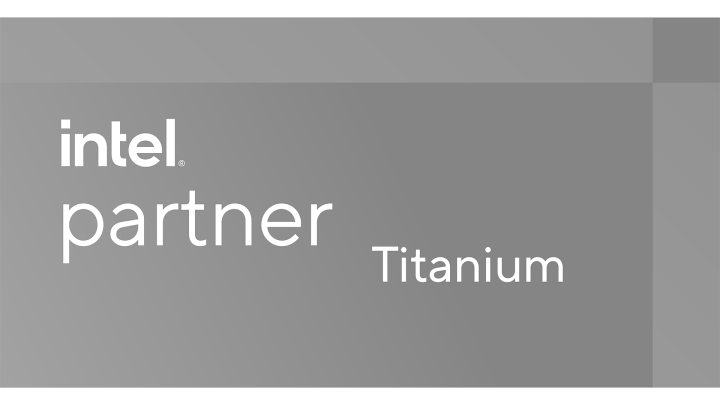WHAT
Artificial intelligence (AI) is the basis for mimicking human intelligence processes through the creation and application of algorithms built into a dynamic computing environment. Stated simply, AI is trying to make computers think and act like humans.
AI is a technology that mimics human intelligence, allowing computer applications to learn from experience via iterative processing and algorithmic training.
AI systems get smarter with each successful round of data processing since each interaction allows the system to test and measure solutions, and develop expertise in the task it’s been set to accomplish.
Since this can be completed rapidly, much faster than the rate a human being would be able to perform similar work, AI systems can become experts far faster than humans, making them incredibly effective options for any process requiring intelligent decision making.
This makes AI an incredibly powerful, and extremely valuable technology, since it essentially allows computers to think and behave like humans, but at much faster speeds and with much more processing power than the human brain can produce.
In many cases and for a variety of different applications, AI systems are capable of significantly outperforming humans, and that’s the primary reason why AI technology has become so important to the modern economy.
WHY
Today, the amount of data that is generated, by both humans and machines, far outpaces humans’ ability to absorb, interpret, and make complex decisions based on that data. Artificial intelligence forms the basis for all computer learning and is the future of all complex decision making.
Types of Artificial Intelligence
Artificial Intelligence can be divided based on capabilities and functionalities.
There are three types of Artificial Intelligence-based on capabilities –
Narrow AI
General AI
Super AI
What is Narrow AI?
Narrow AI, also called as Weak AI, focuses on one narrow task and cannot perform beyond its limitations. It targets a single subset of cognitive abilities and advances in that spectrum. Narrow AI applications are becoming increasingly common in our day-to-day lives as machine learning and deep learning methods continue to develop.
Apple Siri is an example of a Narrow AI that operates with a limited pre-defined range of functions. Siri often has problems with tasks outside its breadth of abilities.
Other examples of Narrow AI include google translate, image recognition software, recommendation systems, spam filtering, and Google’s page-ranking algorithm.
What is General AI?
General AI, also known as strong AI, can understand and learn any intellectual task that a human being can. It allows a machine to apply knowledge and skills in different contexts. AI researchers have not been able to achieve strong AI so far. They would need to find a method to make machines conscious, programming a full cognitive ability set.
What is a Super AI?
Super AI surpasses human intelligence and can perform any task better than a human. The concept of artificial superintelligence sees AI evolved to be so akin to human sentiments and experiences that it doesn’t merely understand them; it also evokes emotions, needs, beliefs, and desires of its own. Its existence is still hypothetical. Some of the critical characteristics of super AI include thinking, solving puzzles, making judgments, and decisions on its own.
USEFUL
Artificial intelligence technology offers several critical benefits that make it an excellent tool for virtually any modern organization, including:
Automation – AI is able to automate a repetitive task that was previously done manually, without feeling any fatigue or having to take breaks like a human employee would need to do.
Enhancement – AI can make products and services smarter and more effective, improving experiences for end-users, via capabilities like optimizing conversation bots or customer service menus, and delivering better product recommendations.
Analysis – AI can analyze data at a much faster rate than humans, allowing it to find patterns much more quickly, and it can also analyze much larger datasets than humans, allowing it to uncover patterns humans would simply miss.
Accuracy – AI can be trained to become more accurate than humans, utilizing its ability to harvest and interpret data to come up with better decisions for tasks like picking financial investments or identifying cancerous growths on x-rays.
ROI – AI maximizes the value of data since it’s able to do a better job analyzing complex, multi-variate relationships, without having to take any breaks and with fewer mistakes, making it an incredibly important technology for any business that relies on data and operates at scale. Simply put, AI allows organizations to make better decisions, improving core business processes by increasing both the speed and accuracy of strategic decision-making processes.
Where
Artificial Intelligence (AI) is bringing a drastic change in technological fields, where it can be implemented to automate the system for more efficiency and performance. AI is now getting used in multiple fields from simply your mobile phone to diagnosing the diseases providing a high-performance and accurate system work with efficiency.
Here we will discuss what are major things and fields AI is used and under process to get fully implemented and launched in upcoming years. Here we will discuss mainly about the fields or industries where AI is playing an important role helping humans to work with better performance and efficiency without help of humans.
Currently AI is Used is Following Things/Fields:
Virtual Assistant or Chatbots
Agriculture and Farming
Autonomous Flying
Retail, Shopping and Fashion
Security and Surveillance
Sports Analytics and Activities
Manufacturing and Production
Live Stock and Inventory Management
Self-driving Cars or Autonomous Vehicles
Healthcare and Medical Imaging Analysis
Warehousing and Logistic Supply Chain


